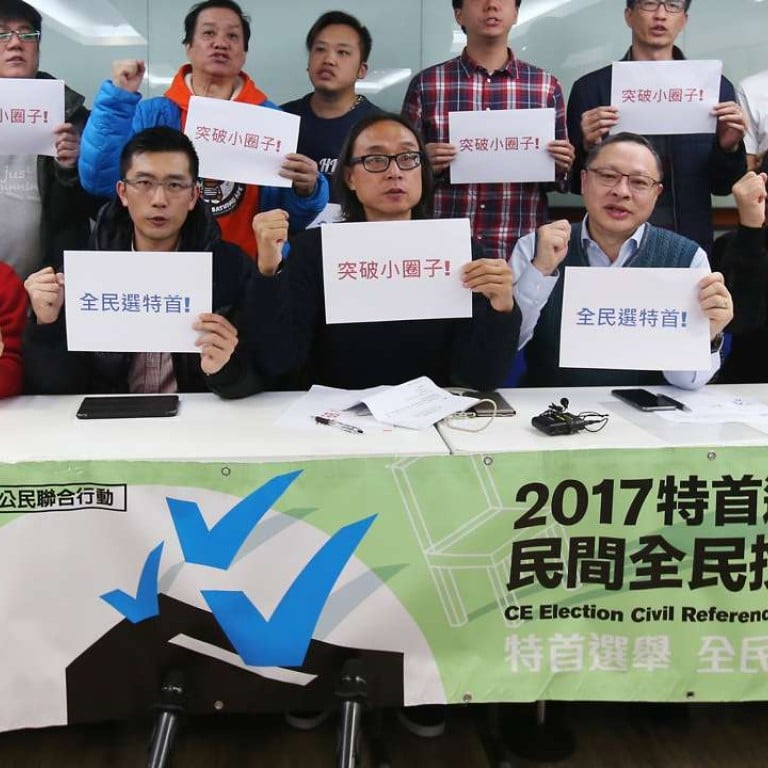
Hong Kong public to be polled on next chief executive
Referendum organisers say they are ‘not playing kingmakers’ but just want voices of people to be heard
Under the plan, voters may indicate their top choice from March 10 to March 19 by a smartphone app or website.
The event is in dramatic contrast to the official election a week after, where only 1,194 members from the Election Committee will decide on the city’s next leader.

From February 7 to 22, any person who can secure 37,790 nominations from members of the public – one per cent of the city’s registered voters – through the electronic platform will also be regarded as a “civil candidate” eligible for the referendum.
“We are definitely not here to be kingmakers,” Tai, a legal scholar at the University of Hong Kong, said. “We just hope that all Hongkongers can participate in such an important event.”
A source from Tsang’s camp said however that he might not participate, adding that the idea was too sensitive and could upset Beijing.
The plebiscite, organised by the post-Occupy group Citizens United in Action, also came amid a split in the pro-democracy camp on how to use their 326 votes secured in the Election Committee.
Some preferred to choose the “lesser of two evils” among pro-establishment candidates, while others called for blank votes to be cast in protest.
Tai admitted not everyone from the pro-democracy bloc would agree with his plan.
“I would not actively urge the pan-democrats to vote or nominate based on the poll results … that is not the yardstick for us to measure the plan’s success,” he warned, adding that it was the turnout that mattered.
I would not actively urge the pan-democrats to vote or nominate based on the poll results … that is not the yardstick for us to measure the plan’s success
The referendum, commissioned to the University of Hong Kong’s public opinion programme and Polytechnic University’s centre for social policy studies to conduct, will also allow Hongkongers to indicate their least-favourite choice. They will also be asked if they agree with the current election system.
Psychologist Ip Kim-ching of Citizens United in Action, who is also a member of the Election Committee’s health services sector, said he would consider nominating the winning aspirant from the public platform.
He said that all Hongkongers should have a right to pick their leader, and he did not want to see the race being monopolised by the committee.
The pro-democracy bloc previously held two similar referendums. Both saw a high turnouts but also encountered immense cyber attacks.
In 2014, the civil referendum on political reform held by Occupy Central recorded “one of the largest cyber attacks in history”, according to a United States-based cybersecurity firm that helped hold off an attempt to crash the system.
Almost 800,000 people voted in the event.
Organisers of this year’s referendum said security had been beefed up to fend off any online attacks.
Woo, the first to declare his bid, said he would continue to seek support from electors and the public.

